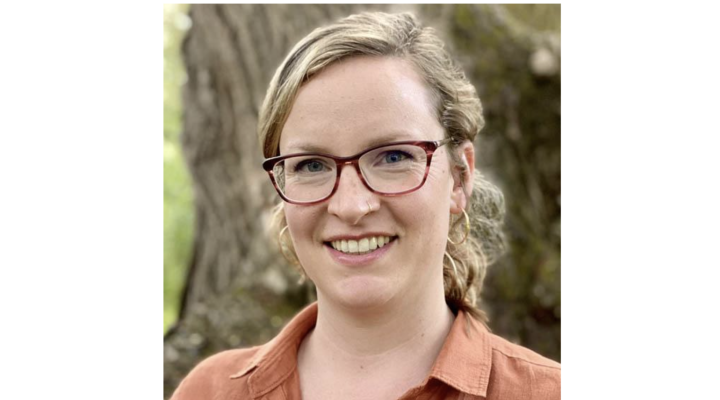Perrine Pepiot is interested in making fuel burn better. Fossil-fuel or renewably-sourced, Pepiot studies the molecular structures and chemical changes that happen when a liquid fuel is burned, with the end goal of making fossil fuels burn cleaner, and biofuels burn better.
Specifically, her research examines how hydrocarbon molecules in transportation fuels such as diesel, kerosene, or gasoline, react and behave when they are burned in a turbulent, hot environment. “We are interested in how energy is released during combustion, and what kind of harmful compounds can be produced, such as particulates and nitrous oxides,” says Pepiot. “We know that the molecular chemistry of the fuel plays a big role in pollutant formation—the problem is, this chemistry is extremely complex and involves a lot of chemical reactions.” And computational fluid dynamics (CFD) tools, which are increasingly being used to design better, more efficient engines, typically don’t incorporate much information on the fuel’s chemical behavior, because “you would need to run the simulations for years to get results,” Pepiot says.
Pepiot wants to change that by providing simple, less expensive ways to incorporate chemical information into CFD simulations of energy systems, thus making more accurate predictions about how clean or dirty a fuel will burn.
She also studies the process of converting biomass into biofuels, specifically biomass sourced from wood. “We are concentrating on wood chips right now because, while wood has a complex structure, it is relatively well-characterized,” says Pepiot. “It’s a little bit more reliable and a little easier to model than other kinds of bio-material.” Her goal is to develop accurate simulations of how a solid material like wood chips can be converted into a liquid fuel compatible with conventional transportation fuels.
Right now, Pepiot says, industry is driving much of the research on biomass. “A lot of different techniques exist to produce biofuel that have been successfully tested in a lab. The real challenge is to build plants large enough to be economically viable.” Pepiot’s simulations on wood chip conversion to biofuel will provide fundamental information on the actual chemical processes involved, and ultimately guide a much more efficient pathway to creating biofuel. “There’s still a long way to go,” says Pepiot, “but we need to start understanding the very fundamental processes in this chemistry so that we have a basis to build models that can be applicable to other, diverse sources of biofuels.”
Pepiot has a background of interest in renewable fuels, having worked as a research scientist at the National Renewable Energy Laboratory in Golden, Colo. Before that, she studied mechanical and aerospace engineering, both in the United States and in France, which gave her a solid foundation in understanding a wide range of propulsion and energy systems. While her background may appear unusual, from aeronautics to combustion chemistry to biofuel production, Pepiot found out that “whenever chemistry interacts with fluid mechanics, be it in an aircraft engine or a bio-reactor, the scientific challenges we face to understand and control these interactions are surprisingly similar.”




